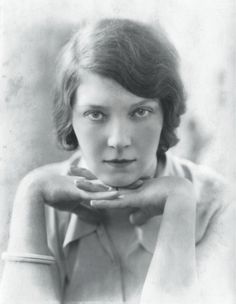 |
| Penguin paperback cover of Good Morning, Midnight, by Jean Rhys, first published in 1939. |
 |
| Ella Williams, who wrote under the pen name of Jean Rhys. |
Jean Rhys’ 1939 novel Good Morning, Midnight, was my
introduction to her as a writer. I read Good Morning, Midnight for a
class I took in college about British Literature of the 20th century,
back in 2002. I had heard of Rhys before, because her novel Wide Sargasso
Sea made Modern Library’s list of top 100 novels in 1998. I remember when I
worked at Barnes and Noble back in 1999 and 2000 a customer recommended Wide
Sargasso Sea to me.
I was bowled over by Good Morning, Midnight when I
read it in college, as I found it a fascinating portrait of a woman struggling
with her demons. Re-reading it in 2020, I’m still struck by Rhys’ artistry and
her deep insights into the human condition. Good Morning, Midnight, is
the last of Rhys’ four starkly modernist novels that were published between
1928 and 1939: Quartet, first published as Postures, After Leaving Mr. Mackenzie, Voyage in the Dark, and Good Morning, Midnight. The
four novels aren’t really meant to be a quartet, but they fit together very
nicely in their themes and in the mood that Rhys’ writing creates. The novels
all deal with female protagonists who endure difficult relationships with men,
and they have few resources for dealing with modern life. These women are
always on the edge of poverty, and they lack the education and drive to do much
with themselves. (They’re probably all also suffering from clinical
depression.)
There’s no real plot to speak of Good Morning, Midnight, as
it’s just the narrator, who may or may not be named Sasha, hangs out in Paris,
and tell us a little bit about her past. But you don’t read a Jean Rhys novel
for the page-turning plots—you read them for the beautiful writing.
One of the men the narrator meets is a melancholy Russian
who has some great quotes: “When I make an appointment I always keep it, even
though I think the other person won’t be there.” (p.63) “If someone had come to
me and asked me if I wished to be born I think I should have answered No. I’m
sure I should have answered No. But no one asked me. I am here not through my
will.” (p.64) Jean Rhys’ heroines might well say the same thing.
The narrator also recounts a time when she was at her lowest
ebb: “I got so that I could sleep fifteen hours out of the twenty-four.” (p.86)
Yikes, that’s not so good.
In fitting with the title of the novel, time does strange
things in Good Morning, Midnight. The narration constantly shifts
between the present and the past. And nothing much happens in either, so it’s
hard to keep them straight. That isn’t meant to be criticism of Rhys’ writing:
different novels offer different pleasures. Jean Rhys was a master at mood, and
throughout her four modernist novels she conjures up bleak cityscapes that
offer no respite from the desperate issues that her characters face. Paris is
the city of light, but it sure doesn’t feel like it in Good Morning,
Midnight.
The ending of Good Morning, Midnight is remarkably
similar to the ending of Tennessee Williams’ novel The Roman Spring of Mrs.
Stone. Williams’ novel was published in 1950, 11 years after Good
Morning, Midnight. Did Williams read Good Morning, Midnight? There’s
probably no way to know for sure. The book certainly wasn’t a best-seller, but
Williams had been writing short stories and plays for decades by 1950, so he could
have been aware of Rhys’ work. Update: No, it’s very unlikely Williams read Good
Morning, Midnight, since I learned from Carole Angier’s biography of Jean
Rhys that Good Morning, Midnight wasn’t published in the United States
until 1970. (Jean Rhys: Life and Work, by Carole Angier, p.596)
Good Morning, Midnight was not a sales success when
it was released in 1939, and after its release Rhys slid into obscurity, not
publishing another novel until Wide Sargasso Sea in 1966. As more time
passed with no new works forthcoming, people assumed Rhys had died, not a
totally unrealistic assumption, especially given the bleak ending of Good
Morning, Midnight. When the actress Selma Vas Dias wanted to get in touch
with Rhys about adapting Good Morning, Midnight as a play, she put an ad
in the newspaper to track the author down. It worked, and Dias helped inspire
Rhys to begin writing again.
Good Morning, Midnight is an excellent, if often
overlooked, modernist masterpiece.
No comments:
Post a Comment